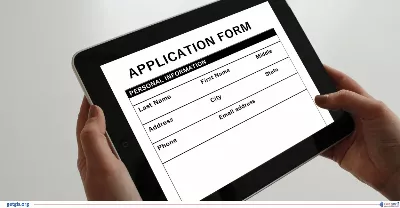Germany Introduces New Skilled Worker Visa Rules for Easier Access to Residence Permits
Updated On
-
Copy link
-
-
Germany has introduced new visa rules under the Skilled Immigration Act to attract skilled workers by simplifying residence permit processes, extending adaptation measures, and facilitating family reunification.
Germany has introduced new visa rules under the Skilled Immigration Act to attract skilled workers by simplifying residence permit processes, extending adaptation measures, and facilitating family reunification. These changes aim to address labor shortages and make Germany a more attractive destination for global talent.
Germany has unveiled new rules to streamline the process for skilled workers seeking residence permits, aiming to enhance its labor market through the revised Skilled Immigration Act. These changes are designed to attract and retain talent, facilitating employment and settlement for foreign professionals.
Previously, skilled workers received an 18-month residence permit for adaptation measures. This has now been extended to 24 months, with a possibility of an additional 12-month extension, allowing for a total of 3 years. This change provides greater stability for both employees and employers.
Skilled workers undergoing qualification measures can now engage in secondary employment for up to 20 hours per week, doubling the previous limit of 10 hours. This adjustment aims to help workers integrate into the labor market more smoothly.
Obtain More Details or Watch this Video To Know About the Germany Job Seeker Visa Process & Cost: How To Apply For Germany Job Seeker Visa From India
New Access Routes for Foreign Qualifications
1. Recognition Partnership
The introduction of the recognition partnership allows applicants to obtain a residence permit for qualified employment while completing the necessary recognition procedures after arrival. Key requirements include:
- A professional qualification requires at least 2 years of training or a recognized university degree.
- German language skills at level A2.
- An employment contract and commitment to pursue qualification recognition.
2. Skills Analysis Entry
Applicants deemed by authorities to need a skills analysis for qualification recognition can receive a residence permit for up to 6 months. Language proficiency at A2 level or better is required.
Explore: Get Settled in Germany with Ease!
Employment of Skilled Workers with Practical Knowledge
Non-Regulated Professions Inclusion
Germany has expanded the employment scope for workers with practical professional knowledge to all non-regulated professions. Applicants must have:
- A professional qualification or university degree recognized by their country.
- At least 2 years of work experience in the relevant field.
- A job offer with an annual gross salary of at least €40,770.
IT Specialists
For IT specialists, the required professional experience has been reduced to two years. No formal qualification or language skills are needed, provided the job offer meets the minimum salary threshold.
Read & Know More About IT jobs in Germany: Software Engineer Salary in Germany
Special Provisions for Nursing Assistants
New rules allow nursing assistants from third countries with less than three years of regulated training to work in Germany's health and care sector, addressing labor shortages in healthcare.
Skilled workers can now obtain a settlement permit after three years (down from four) if they hold a residence permit. EU Blue Card holders benefit from an even shorter period of 27 months, or 21 months with B1 level German proficiency. Those who completed their education in Germany can acquire a settlement permit after two years of employment as qualified professionals.
Read More: Nurse Salary in Germany: Everything You Need to Know!
Get to know about the Benefits of Working in Germany!
Family Reunification and Start-Up Grants
- Easier Family Reunification: Spouses and minor children of skilled workers no longer need to prove sufficient living space. Additionally, parents and parents-in-law can join skilled workers if certain conditions are met.
- Support for Start-Up Entrepreneurs: Skilled workers receiving grants from German research organizations or public bodies can obtain an 18-month residence permit to establish a business.
Germany's new skilled worker visa rules are a significant step towards making the country more attractive to global talent. By extending residence permits, simplifying qualification recognition, and easing family reunification, Germany aims to bolster its workforce and address labor market needs effectively.
Get Access To Germany Residence Permits With ����ÿ�մ���
Get Access to Germany Residence Permits with ����ÿ�մ���! Germany has recently introduced new visa rules to attract skilled workers, making it easier than ever to obtain residence permits. With extended adaptation measures, increased secondary employment hours, and streamlined qualification recognition processes, skilled professionals can now navigate the German labor market with greater ease.
����ÿ�մ��� is here to help you take advantage of these new opportunities, providing guidance and support throughout your journey to securing a residence permit and building a successful career in Germany.
Frequently Asked Questions
Q1. How does the extension of the adaptation measure residence permit benefit skilled workers?
The extension from 18 to 24 months, with a possible 12-month renewal, provides skilled workers with more time to complete necessary qualifications and find stable employment, reducing pressure and enhancing job security.
Q2. How does the recognition partnership improve the job prospects for skilled workers?
The recognition partnership allows skilled workers to start working in Germany immediately while completing their qualification recognition process, providing a smoother transition and faster entry into the labor market.
Q3. How do the new rules affect IT specialists seeking employment in Germany?
IT specialists benefit from reduced required professional experience (from three to two years) and no mandatory language skills, making it easier for them to enter the German job market if their job offer meets the salary threshold.
Q4. How does the new Skilled Immigration Act impact the job market in Germany?
The new Skilled Immigration Act makes Germany more competitive in the global job market by simplifying the process for skilled workers to obtain visas and residence permits, thus attracting highly qualified professionals to fill critical labor shortages.
Q5. What are the specific benefits for EU Blue Card holders under the new rules?
EU Blue Card holders can now obtain a settlement permit after 27 months of employment, or 21 months if they have B1 level German proficiency. This accelerated pathway offers greater job security and long-term stability in Germany.




